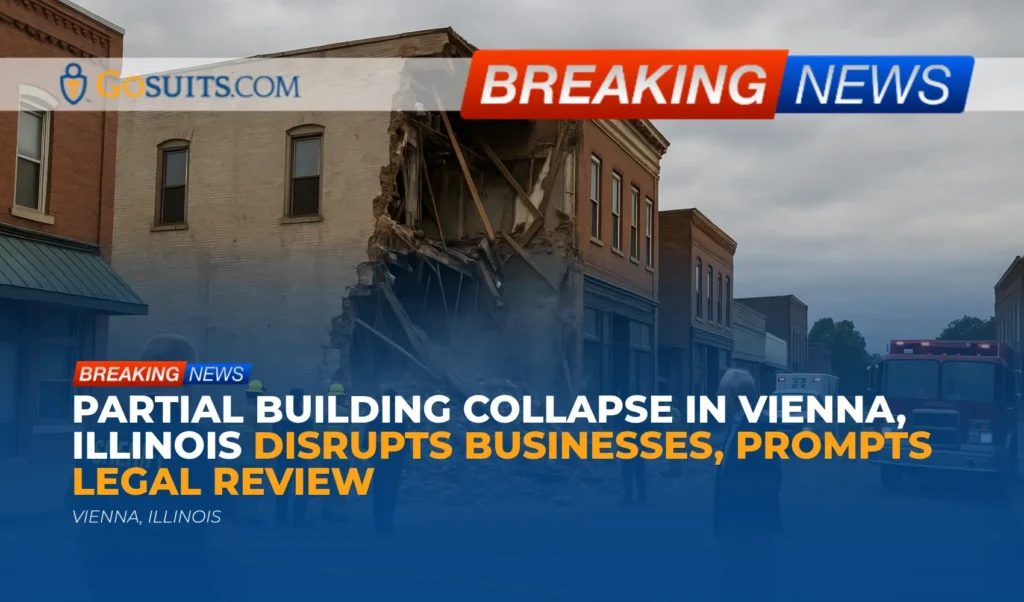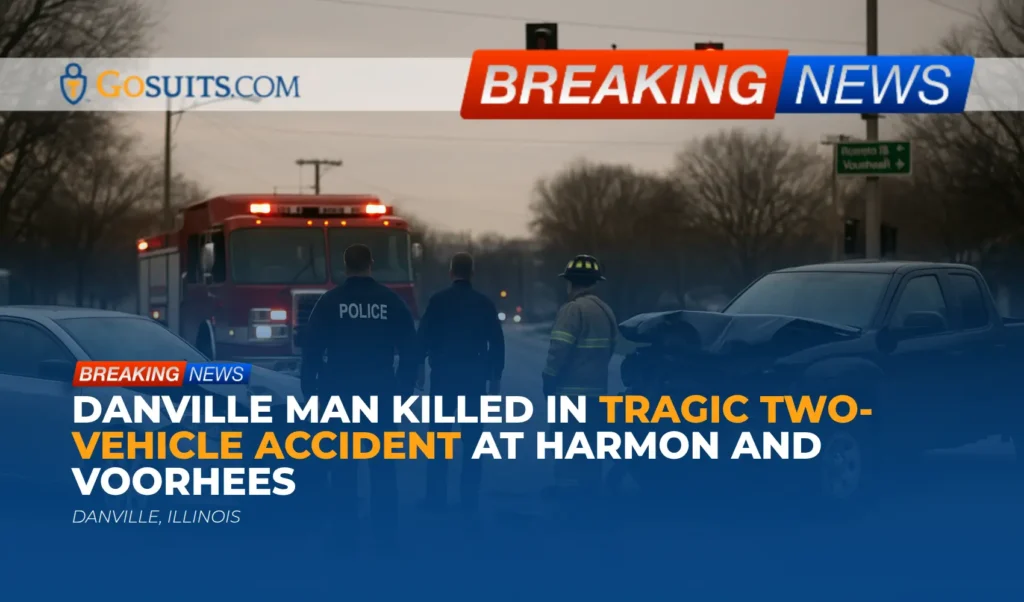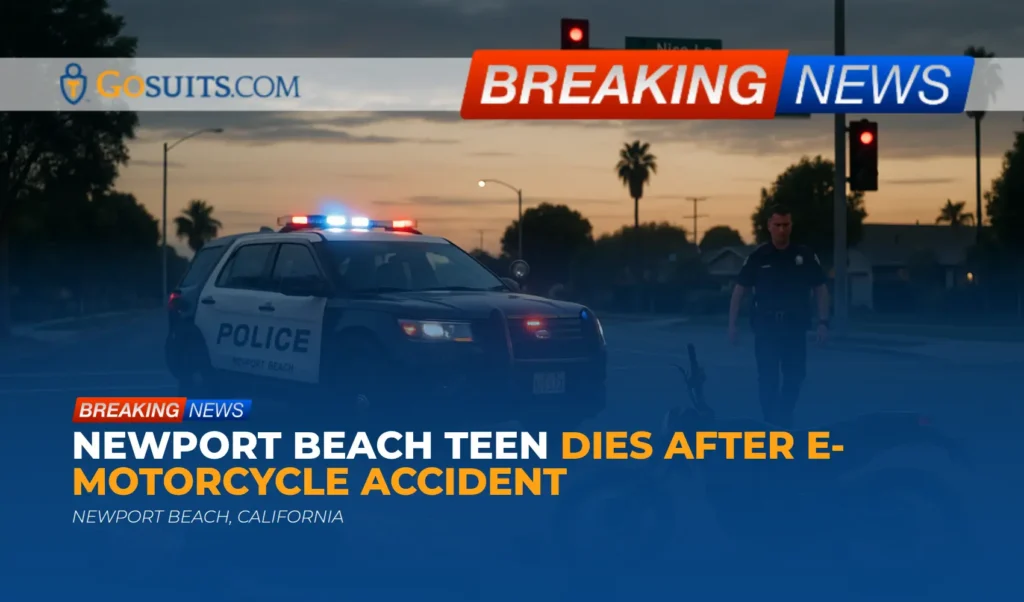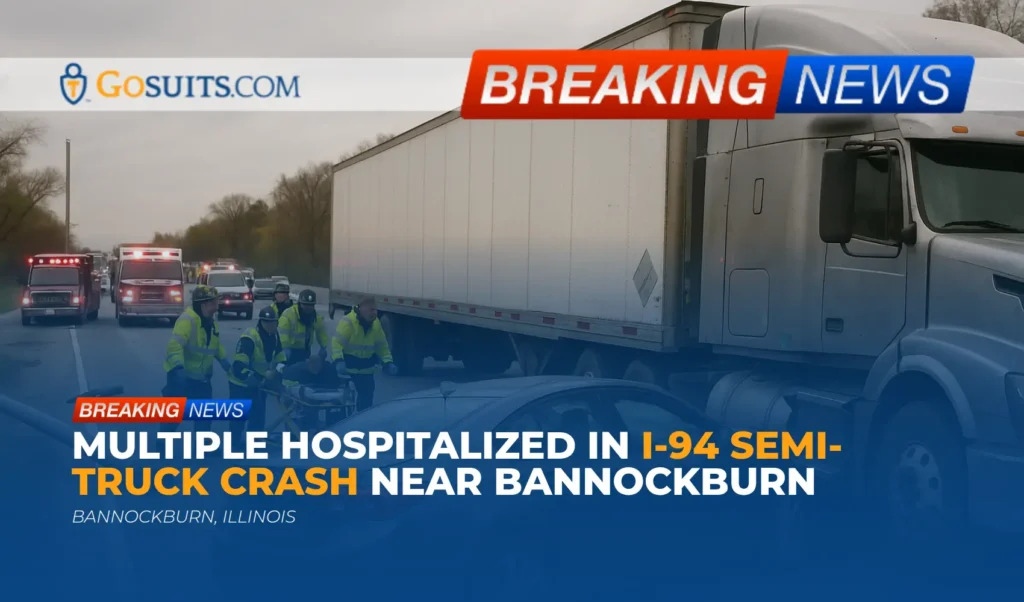On September 25, 2025, a partial building collapse occurred at 124 N 4th St. in Vienna, Illinois, prompting a swift emergency response. The Johnson County Sheriff’s Office received the initial 911 call at 1:55 PM, leading to the immediate dispatch of multiple agencies, including the Vienna Police Department, Johnson County Sheriff’s Department, Vienna Fire Department, Johnson County Ambulance Service, and the Johnson County Emergency Management Agency (EMA). Local officials, including Mayor Steve Penrod and city aldermen, also arrived at the scene to assess the damage and coordinate efforts.
Fortunately, no injuries were reported as a direct result of the collapse. However, the incident has had significant repercussions for nearby businesses and residents. Mayor Penrod issued an executive order prohibiting occupancy of the adjacent buildings at 126 N 4th St. (State Farm Insurance office) and 122 N 4th St. (Cross Creek Antiques apartment) until a comprehensive structural evaluation can be completed. This measure underscores the potential dangers associated with structural instability and the importance of prioritizing public safety.
Understanding the Potential Legal Ramifications
Building collapses, even partial ones, raise complex legal questions regarding liability, negligence, and the rights of those affected. While the absence of immediate injuries is a relief, the economic impact on businesses and residents forced to evacuate their properties can be substantial. Understanding these implications is crucial for anyone potentially affected by such an incident.
Liability and Negligence
In cases involving building collapses, establishing liability often requires a thorough investigation to determine the cause of the structural failure. Potential factors contributing to a collapse can include:
- Construction Defects: Flaws in the original design or construction of the building, such as using substandard materials or failing to adhere to building codes, can lead to structural weaknesses over time.
- Maintenance Negligence: Failure to properly maintain the building, including addressing signs of deterioration or making necessary repairs, can contribute to a collapse.
- Environmental Factors: Natural events such as earthquakes, severe storms, or prolonged exposure to moisture can weaken a building’s structure, increasing the risk of collapse.
- Improper Alterations: Unauthorized or poorly executed renovations or modifications to the building can compromise its structural integrity.
Identifying the root cause is essential for determining who may be held liable for the damages resulting from the collapse. Potentially liable parties may include the building owner, property management company, contractors involved in construction or renovations, architects, engineers, or even manufacturers of defective building materials.
Rights of Affected Parties
Even without direct physical injuries, the occupants and owners of the neighboring buildings affected by the evacuation order have rights and may be entitled to compensation for their losses. These losses can include:
- Lost Business Income: Businesses forced to close due to the evacuation order may suffer significant financial losses.
- Relocation Expenses: Residents forced to evacuate may incur expenses for temporary housing, meals, and other necessities.
- Property Damage: Although no direct damage is mentioned to neighboring properties, vibrations or other indirect consequences from the collapse could potentially cause minor damage.
- Emotional Distress: The disruption and uncertainty caused by the collapse and evacuation can lead to emotional distress and anxiety.
Affected parties should document all expenses and losses related to the incident, including lost wages, receipts for temporary housing, and other relevant documentation. It’s essential to consult with an experienced personal injury attorney to understand their legal rights and options for pursuing compensation.
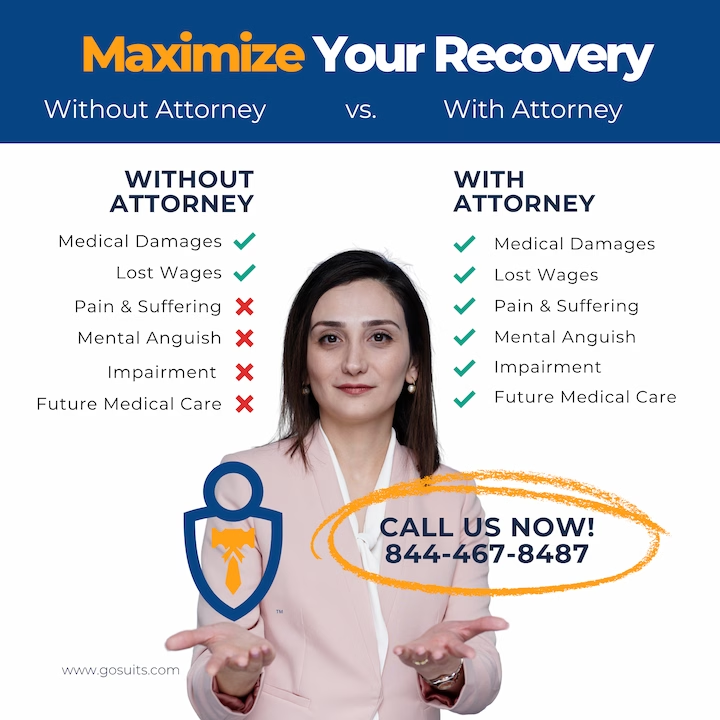
Insurance Implications
Insurance coverage plays a crucial role in addressing the financial consequences of a building collapse. Property owners should review their insurance policies to understand the scope of their coverage, including provisions for property damage, business interruption, and liability protection.
- Property Insurance: This typically covers damages to the building itself, but may also extend to losses incurred due to the inability to occupy the property.
- Business Interruption Insurance: This can provide coverage for lost income and expenses incurred as a result of a temporary business closure.
- Liability Insurance: If the building owner or other party is found liable for the collapse, their liability insurance may cover the damages suffered by affected parties.
Navigating insurance claims can be complex, and it’s often helpful to have legal representation to ensure that all claims are properly submitted and that the affected parties receive fair compensation.
Safety Concerns and Preventative Measures
Building collapses underscore the critical importance of adhering to building codes, conducting regular inspections, and addressing structural issues promptly. Property owners have a responsibility to maintain their buildings in a safe condition and to take appropriate measures to prevent collapses. This includes:
- Regular Inspections: Conduct regular inspections by qualified professionals to identify potential structural problems.
- Prompt Repairs: Address any signs of deterioration or damage immediately to prevent further weakening of the structure.
- Code Compliance: Ensure that all construction and renovation work complies with applicable building codes.
- Emergency Planning: Develop and implement emergency plans to ensure the safety of occupants in the event of a structural failure.

Commentary from Gosuits Vienna, Illinois Personal Injury Attorney
A partial building collapse, such as the one experienced in Vienna, Illinois, can have wide-ranging effects, impacting not only the property where the collapse occurred but also neighboring businesses and residents. Understanding the legal landscape surrounding such incidents is essential for protecting the rights of those affected. While the immediate concern is always the safety and well-being of the community, it’s crucial to recognize that there are potential legal avenues for seeking compensation for economic losses and other damages stemming from the incident. An attorney can help navigate the complexities of liability, insurance claims, and legal options, ensuring that the affected parties are fairly compensated for their losses.
